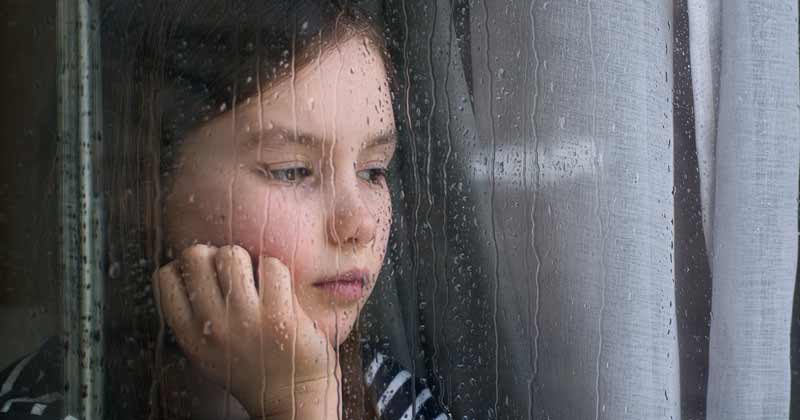School students in exam years are missing coursework, dropping subjects and facing disrupted preparation because of changes in their care placements amid a national crisis, according to new research.
Children’s care charity Become found that one in three children in care in school years 10 to 13 had to move home during that period of their education in 2023-24, with more than one in ten having to move school or college – a figure that excludes planned school moves after GCSEs.
The figures, sourced from freedom of information responses from 80 per cent of local authorities in England, also highlight the impact of the “care cliff”’ when young people turn 18 and are often hastily pushed out of the children’s care system by councils.
Thirty percent of young people in care moved home or left care during their A-level exam period – between April and June.
Thousands of students have been forced to move more than 20 miles from their home or their previous placement, with some being moved across the country, forcing them to change school.
Crisis undermined children’s act
The figures show how the crisis in the children’s care system undermines the Department for Education’s Children Act guidance, which says that “everything possible” should be done to maintain a child in their existing school in years 10 and 11.
Moves should only happen in “exceptional circumstances”.
Become’s research found that 2,817 children in care moved school in years 10 and 11 in 2023-24, representing 17 per cent of all care-experienced students at key stage 4.
“Teachers will know better than most how stressful those exam periods can be for all children,” Katharine Sacks-Jones, chief executive of Become, told Schools Week.
“But, if you imagine your whole life being uprooted in the middle of that, having to move to a new home where you don’t know anyone, get settled, sometimes into a new town, to move school – obviously that has an impact on your wellbeing.
“But it also has a very practical impact on your ability to engage with your schooling. You might miss coursework, you might not be able to meet deadlines.
“You might be out of school altogether for a period, or you might be having to travel very long distances back to your old school. And, obviously, all of that has an impact on your ability to focus on your studies, to finish your coursework, to do well in your exams.”
Sacks-Jones added that school moves can break up students’ relationships with teachers, who can be one of the main points of stability in their lives.
Become held focus groups in which young people spoke about their experience of having to move home or school.
One 16-year-old currently in care told the charity: “The main thing for me was going into school every day and acting like everything is OK. It meant acting like all of my clothes aren’t in bin bags, like I haven’t just fished them out, or like I haven’t been moving till 9pm to get where I need to be.”
Schools ‘must make allowances’
While some schools go “above and beyond to really look out for those children”, others lack understanding, such as “not making allowances”, Sacks-Jones said.
Become is calling for the national roll-out of trauma-informed training so that staff can better respond to care-experienced students dealing with disruption in their lives – a call echoed by school leaders’ union NAHT.
The report also calls on sixth form colleges, universities and vocational courses to make more use of contextual admissions, which take account of applicants’ background and circumstances as well as academic achievements.
Rob Williams, senior policy advisor at NAHT, said: “When children in care have to move – sometimes to entirely new schools or areas – this disruption can often add to previous traumatic experiences, affecting their wellbeing, ability to attend school, focus on their learning once there, and to form and maintain friendships.”
But this “cannot be left to schools to navigate in isolation” and wider services should be better aligned with education, he added.
The situation is particularly acute for children with SEND, who already face additional barriers and for whom relationships with teachers who understand their needs can be vital.
“If a child needs a specialist school place, that can be very, very difficult if they move to secure it,” said Sacks-Jones. “It can take significant periods of time, which can mean long gaps out of school. And that happens frequently to young people who have SEND who are in care.”
Become’s report, Moved During Exams, features testimony from young people who felt their education had been damaged by care moves.
A particular problem is that the lack of suitable school places can mean a lag time between students moving to a new care home or foster home and starting at their new school.
From top of the class to bottom
“I was out of school for three months and went from the top of the class to the bottom of the class when I first went into care,” one person told the charity’s focus groups.
Iesha Christopher, who is now 21, was moved from her family home in Bognor Regis in West Sussex to a foster placement in Orpington, Kent, at the age of 13.
Uprooted from her friends and siblings, she kept running away back to Bognor Regis, triggering a series of 13 care placements around London and the South-east – plus a week-long foster placement hundreds of miles away in Grimsby – before she left care.
After a spell in two pupil referral units, West Sussex council simply stopped enrolling her in school, meaning she received no education for around three years until she took her GCSEs on her own initiative aged 17.
“Because I was so young, I was just seeing it as extra time to spend with my mates who are off bunking,” she told Schools Week. “When it got to that point I would move so many times, I just started losing interest in things.”
She is now going back to college to study barbering. Looking back, she is unhappy at how her education was managed and feels that tutoring – at least – should have been arranged for her.

“I am now paying the price for a mistake that was never mine to pay,” she said. “The fact that we’re already disadvantaged kids who have come from bad backgrounds, and for whatever reason we are in care, that should make us more privileged to get in that education, helping lift ourselves up, because we’re never going to have those people there behind us to help us.”
The frequency of care moves is a result of a nationwide shortage of suitable care placements and foster carers, while foster placements can swiftly break down.
A Local Government Association spokesperson said councils were doing “everything they can to ensure children in their care are placed in the right home”.
Securing a “stable placement should help to limit the upheaval” of having to move schools. But the record number of children in care has put “real strain” on provision.
Become’s report calls on the government to review why so many children in care move school or college during their exam years.
A Department for Education spokesperson said: “For too long, vulnerable children across the country have been let down, placed far away from vital support networks at a massive cost to their stability and life chances.”
The children’s wellbeing and schools bill “represents the biggest overhaul of children’s social care in a generation and is a key step towards delivering the government’s mission to break the link between young people’s background and their future success”.






Your thoughts